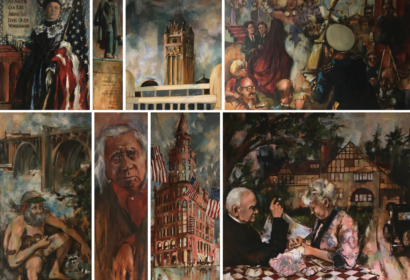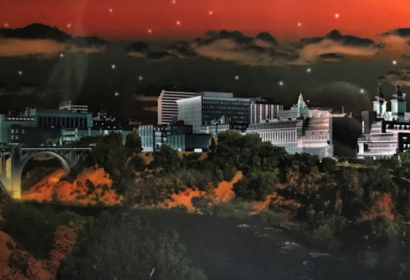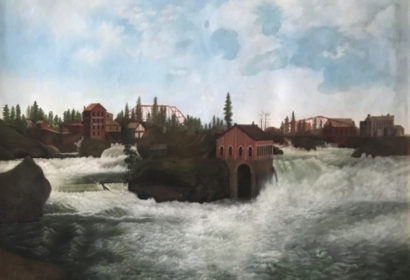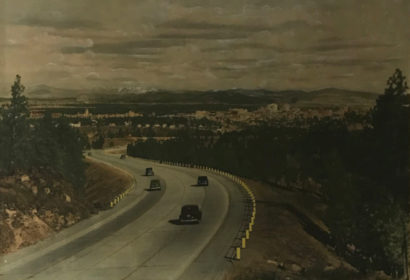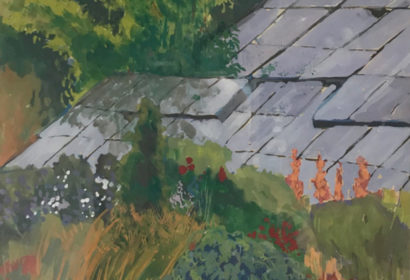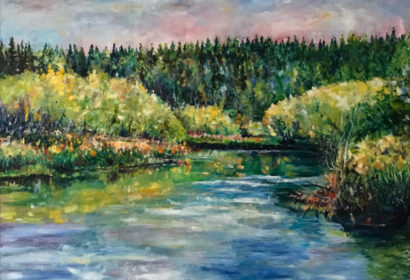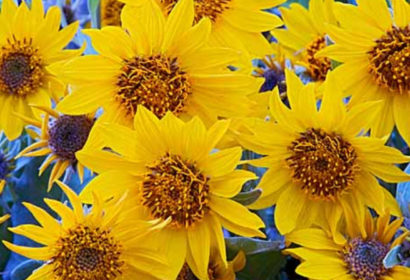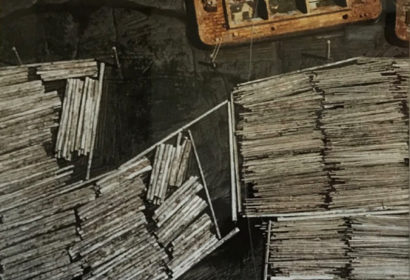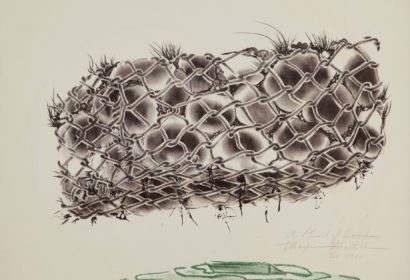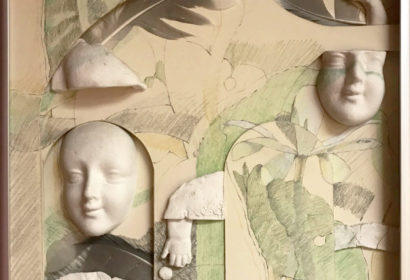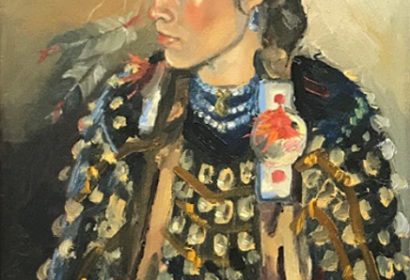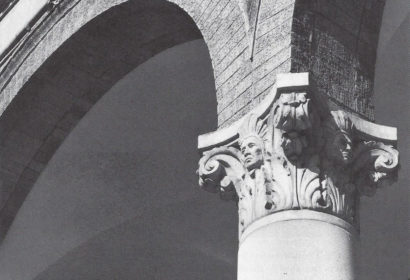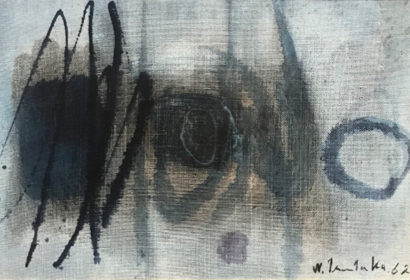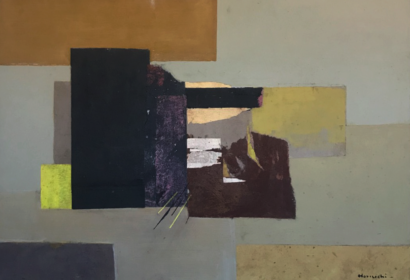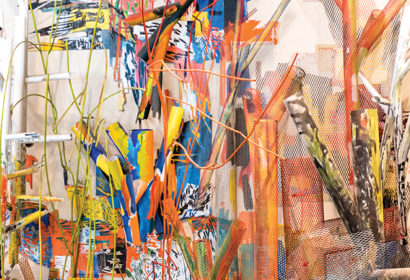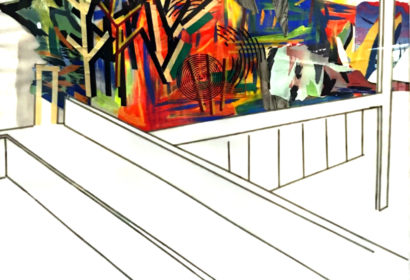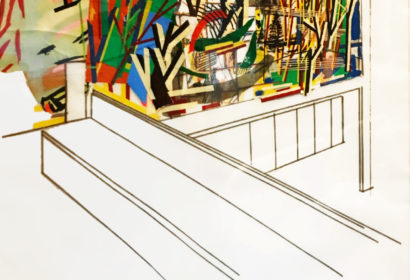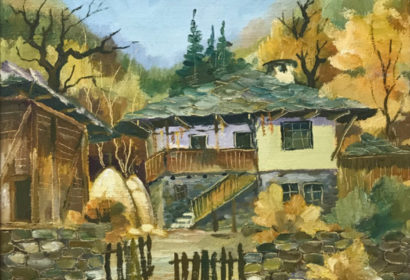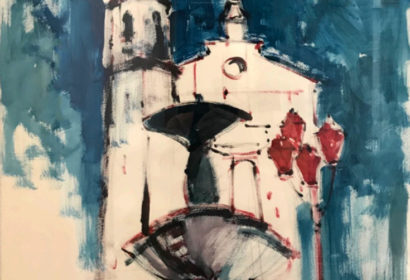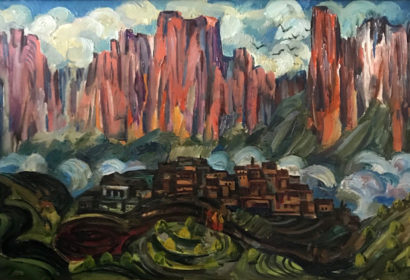Selections from the Permanent Collection
Click on an image below to scroll through gallery. Then dive deeper into learning about the artists that created the pieces below!
John Thamm
Painter and educator John Thamm grew up in Spokane and received his BFA and MFA from the University of Idaho. After studying portraiture with Samuel Oppenheim and working in social realism with guidance from Jack Levine in New York, Thamm returned to Spokane, taught at the Community Colleges of Spokane, worked as a courtroom sketch artist, and began to teach portrait painting workshops across the U.S. and Europe. Thamm’s passions are portrait painting, landscapes, and social realism. These passions are evident in his work in private collections throughout the U.S., regional exhibitions, and books Vets: Fifty Portraits of Veterans and Their Stories and The Presidential Collection.

John Thamm
Oil on Canvas
1979
Spokane City Hall
These eight paintings were commissioned for Spokane City Hall and feature:
Mary Hutton, a suffragette who not only worked to get women the right to vote but whose family started the Hutton Settlement Children’s Home.
The Lincoln Statue (1930) by Alonzo Victor Lewis, Spokane’s Civil War memorial.
Spokane County Health Building (1970) framing the Spokane County Courthouse (1894 -1895).
A Lilac Princess encircled by the Lilac Parade and armed forces downtown. The Lilac Parade has been a Spokane Lilac Festival tradition since 1938.
Willie Willey, Spokane’s foremost naturalist who was known for sunbathing nude by the Spokane River.
Chief Gary, a Spokane Tribe leader born in 1811, who was a teacher, translator, and an important advocate for peace and the allocation of land for the Spokane Tribe.
The Spokesman-Review Tower (1891) which is still home to the newspaper business that birthed it.
Amasa Campbell and Grace Campbell, who made their fortune in mining, in front of their house, the Campbell House (1898).
Gay Waldman
Originally from Idaho, Spokane-based mixed media artist Gay Waldman is recognized for her photographs enhanced with pencils and pastels and her original digital creations on luster or metallic photo paper, dye-infused aluminum, and fabric. Waldman holds a BA from Lewis Clark State College and has exhibited throughout the Northwest including a solo show in 1989 at the Chase Gallery.
https://www.gwaldman.com/portfolio
https://www.facebook.com/gwaldmanART/
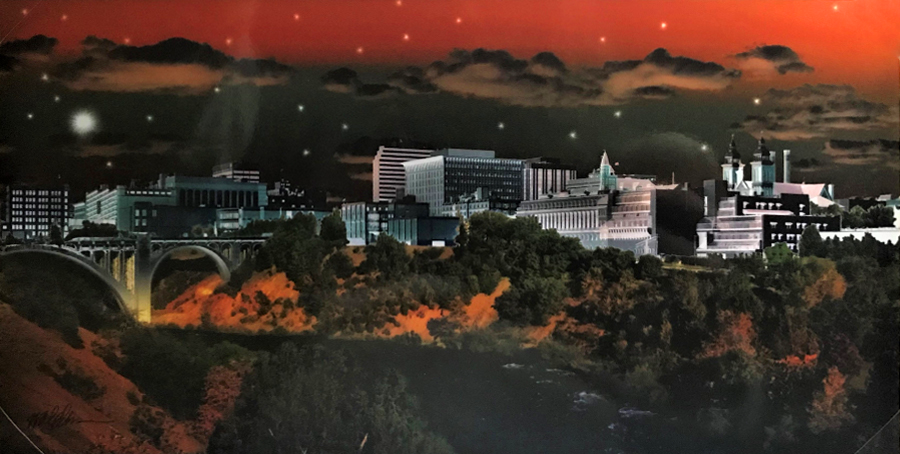
Gay Waldman
Stary Night
Photograph
28 x 38 inches
Police Evidence Facility
"Photographing reality has always been the starting point for my artwork. Then my intuitively enhanced images become my artistic expressions... In a significant way, my work expands how the viewer perceives, considers, and interprets photographic media as art."— Gay Waldman
Blanche Hadley-Strong
The donated painting Spokane Falls was originally commissioned for postcards promoting Spokane. Now it is the oldest painting in City Hall and is a look back in time to what Spokane Falls looked like at one point in the past.
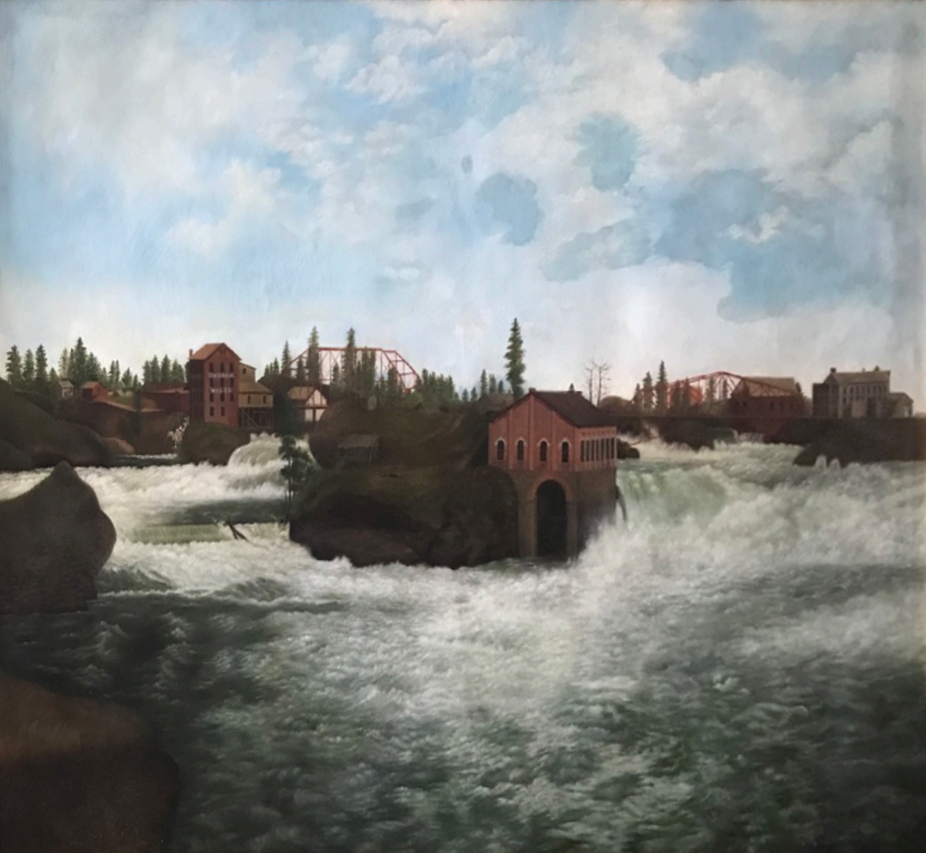
Blanche Hadley-Strong
Spokane Falls
Oil on Canvas
50.5 x 35.5 inches
1980
Spokane City Hall
Unknown Artist
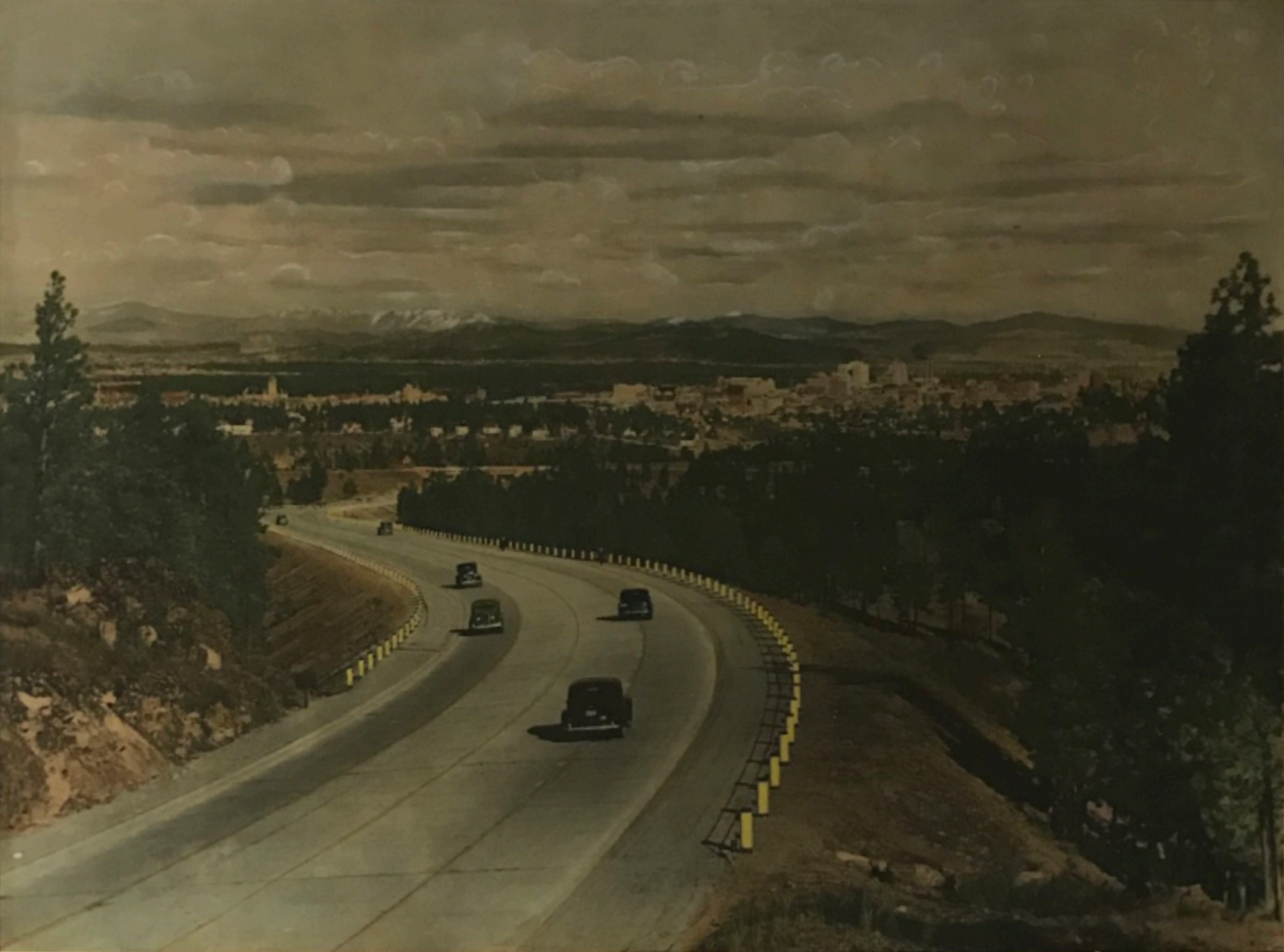
Unknown
1930s Auto Sunset Hill
Painting
Spokane City Hall
Christine Druffel
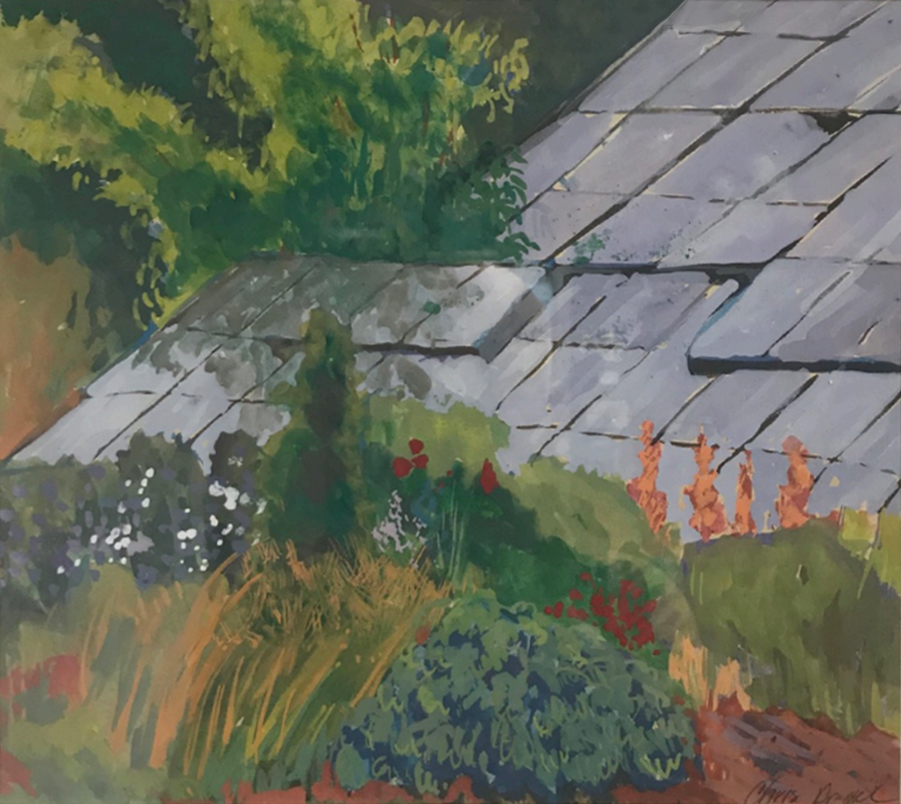
Christine Druffel
Sharp Street Greenhouse
Casein on Paper
10 x 10 inches
1980
Spokane City Hall
LR Montgomery
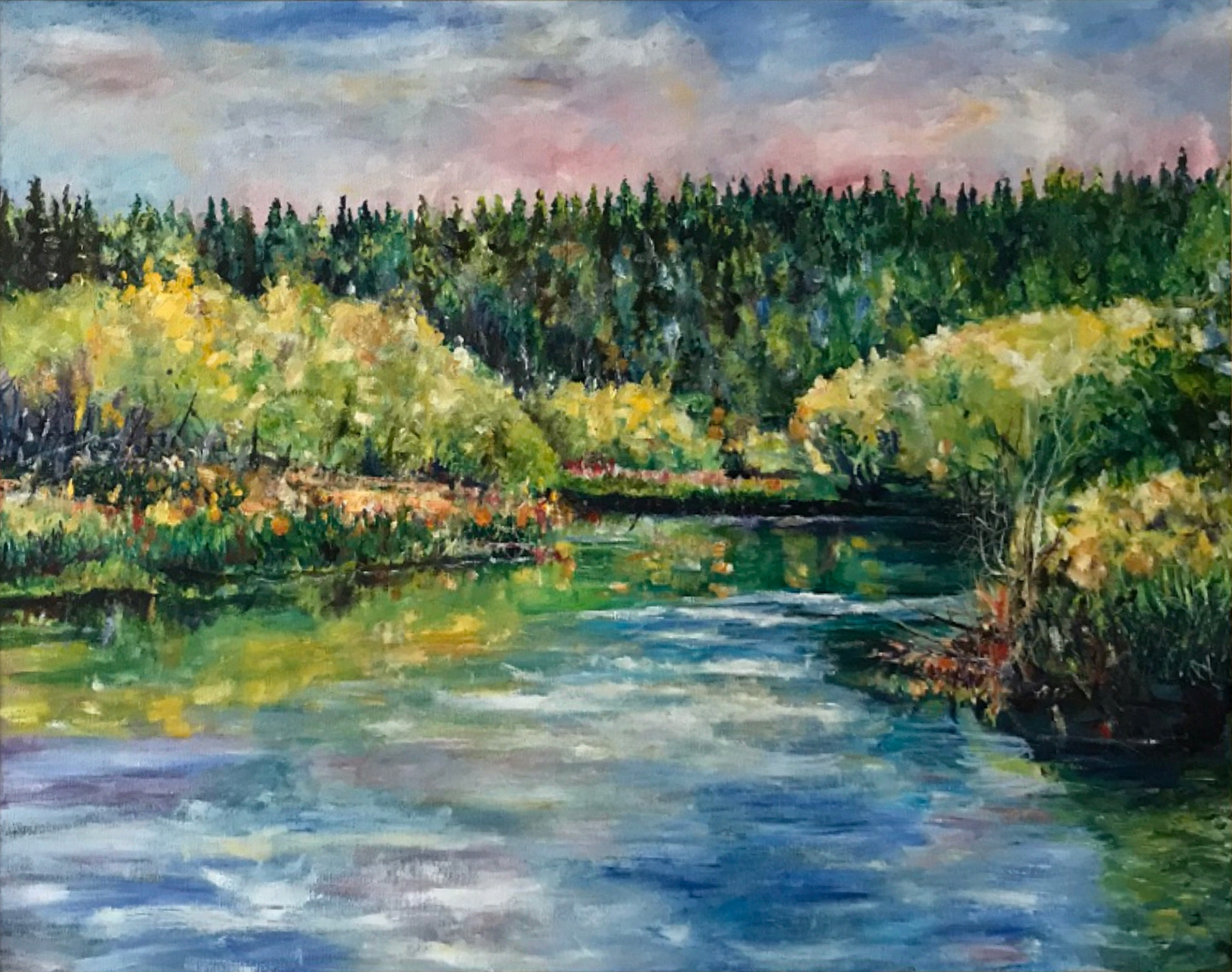
Larry Montgomery
St. Joe River Rapids
Oil
2002
Fire CCC Building
“I applaud those with the foresight and determination to conserve our natural areas for enjoyment, environmental stewardship, and education. Our rugged yet fragile natural areas, (like art) are a gift from the past, a gift for today, and a gift for the future. Through art, I strive to conserve and grow the great gift of our natural areas, and share it with others“
— LR Montgomery
Spokane resident and current artist-in-residence at Dishman Hills Conservatory, LR Montgomery creates original impressionistic landscape paintings of our beloved Northwest. Montgomery’s plethora of work can be found in the collections of corporations, private individuals, environmental groups, museums, and educational institutions throughout the USA, Europe, Russia, China, Mexico, Canada, Africa, and Japan.
Charles Gurche
“I’ve been lucky to have spent many days wandering through and looking at this glorious world. Sometimes the connection with a place or a moment are so meaningful and potent; I only hope to convey a bit of that passion in a photograph.”
— Charles Gurche
Spokane-based landscape photographer Charles Gurche’s images are widely recognized for their artistic and personal quality. Gurche has received awards from the Roger Tory Peterson Institute of Natural History, the Society of Professional Journalists, Nature’s Best International Photography Awards, and the Washington State Governor’s Book Award. His images have appeared in hundreds of publications including Audubon, National Geographic, Smithsonian and National Park Service books and magazines. Gurche has published 14 large-format photography showcase books and exhibits in private and public spaces worldwide.
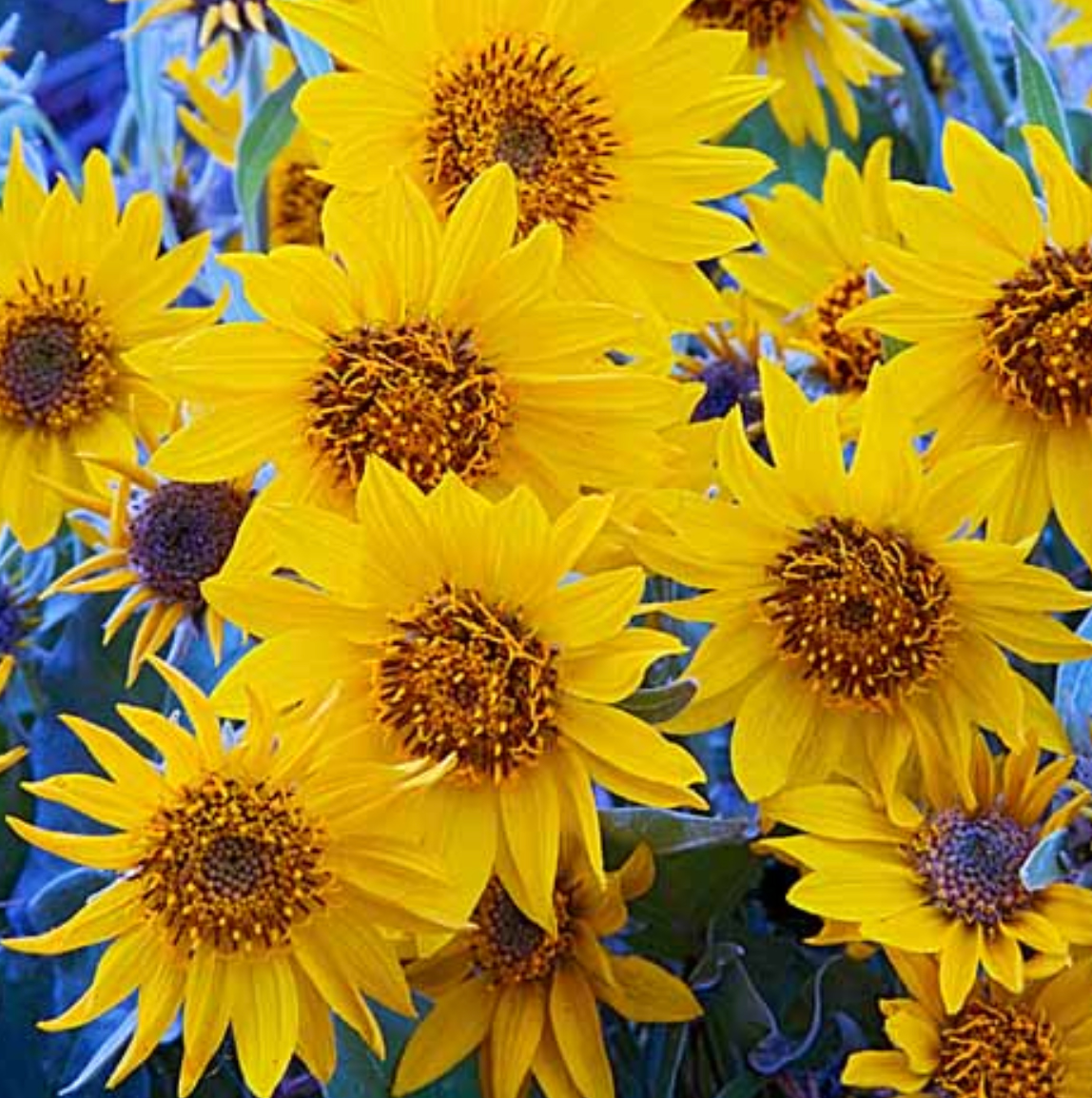
Charles Gurche
ArrowLeaf Balsamroot
Photograph
24 x 24 inches
Gardner Building
Mark Abrahamson
Seattle-based photographer and environmental advocate Mark Abrahamson’s aerial photography explores the United States’ urban and rural environments, examining how man has altered the landscape, affected our watersheds, and contributed to climate change.
Mark Abrahamson grew up in coastal Washington, where he developed his interests in the natural world. A dentist by trade, he eventually left his practice to pursue photography full time. Abrahamson’s project Global Warming: An American Perspective combines select photographs with a lecture detailing what he’s seen and learned about climate change in over 20 years of photographing. Abrahamson holds a BA from Whitman College and a D.D.S. from the University of Washington. Abrahamson’s work is in collections nationwide, including the Brooklyn Museum, Portland Art Museum, Amon Carter Museum of American Art, Tacoma Art Museum, among others.
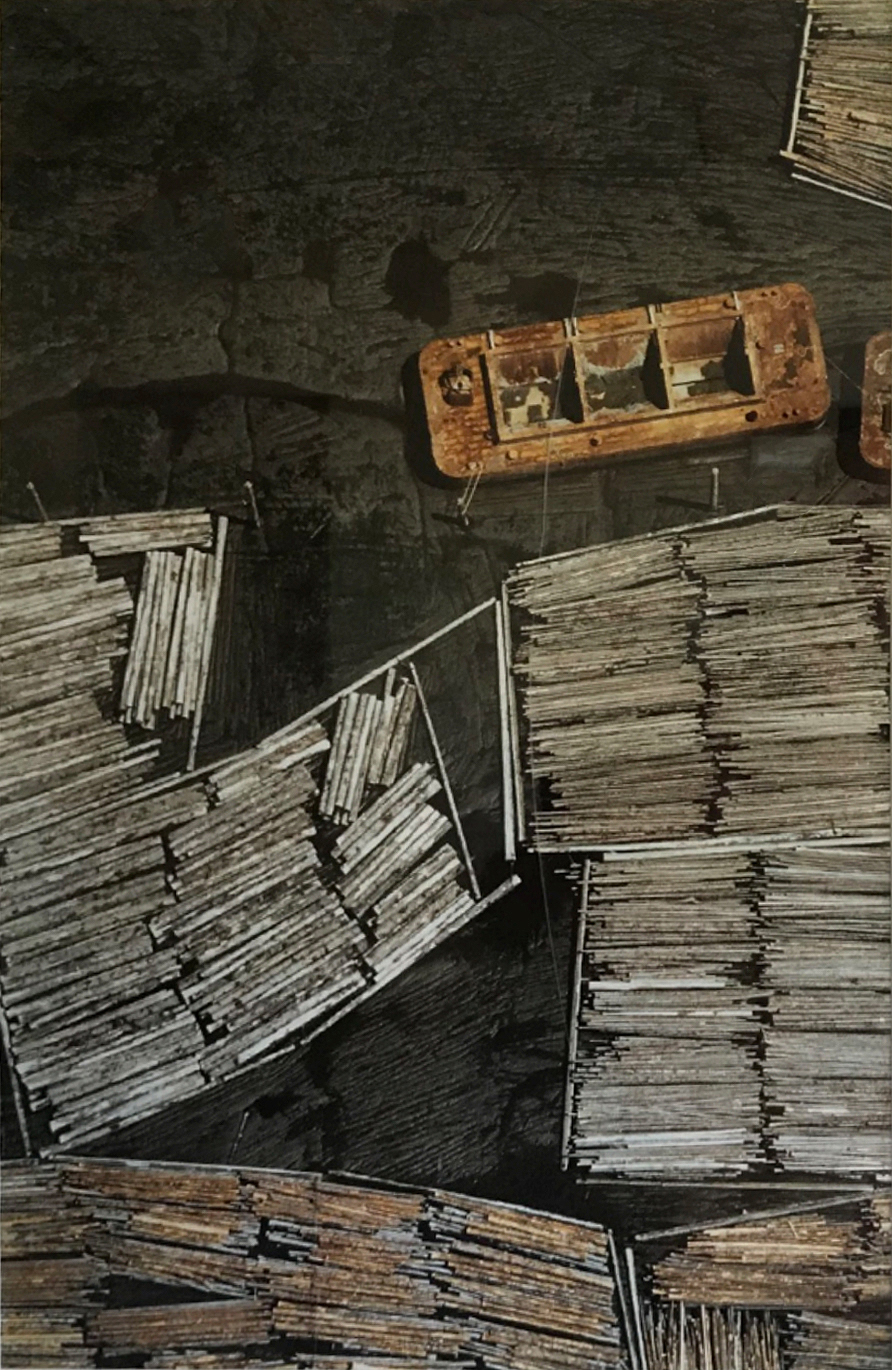
Mark Abrahamson
Log Prints
Cibachrome
20 x 26 inches
1992
Spokane City Hall
Maxine Martell
Parcel of Land from Maxine Martell’s Elements series depicts a block of land bound by chicken wire floating above a green field. Additional editions of Parcel of Land can be found in collections throughout Washington, including the Northwest Museum of Arts and Culture and Seattle Office of Arts and Culture. More work of Seattle-based artist and curator Maxine Martell can be seen at the Seattle/Tacoma International Airport, in the collections of the Kobe Art Museum in Japan and Pratt Graphic Art Center in New York, and more. Martell holds an MFA from the University of Washington and noteworthy awards including the Lifetime Achievement Award at the Florence Biennale in Italy, a Purchase Award from Pratt Graphic Art Center, First Prize at the Seattle Women’s Film Festival, and a nomination for a Seattle Neddy Artist Fellowship. Martell formerly served as curator at the Northwest Museum of Arts and Culture and director of the Spokane Arts School.
https://www.instagram.com/maxinemartell/
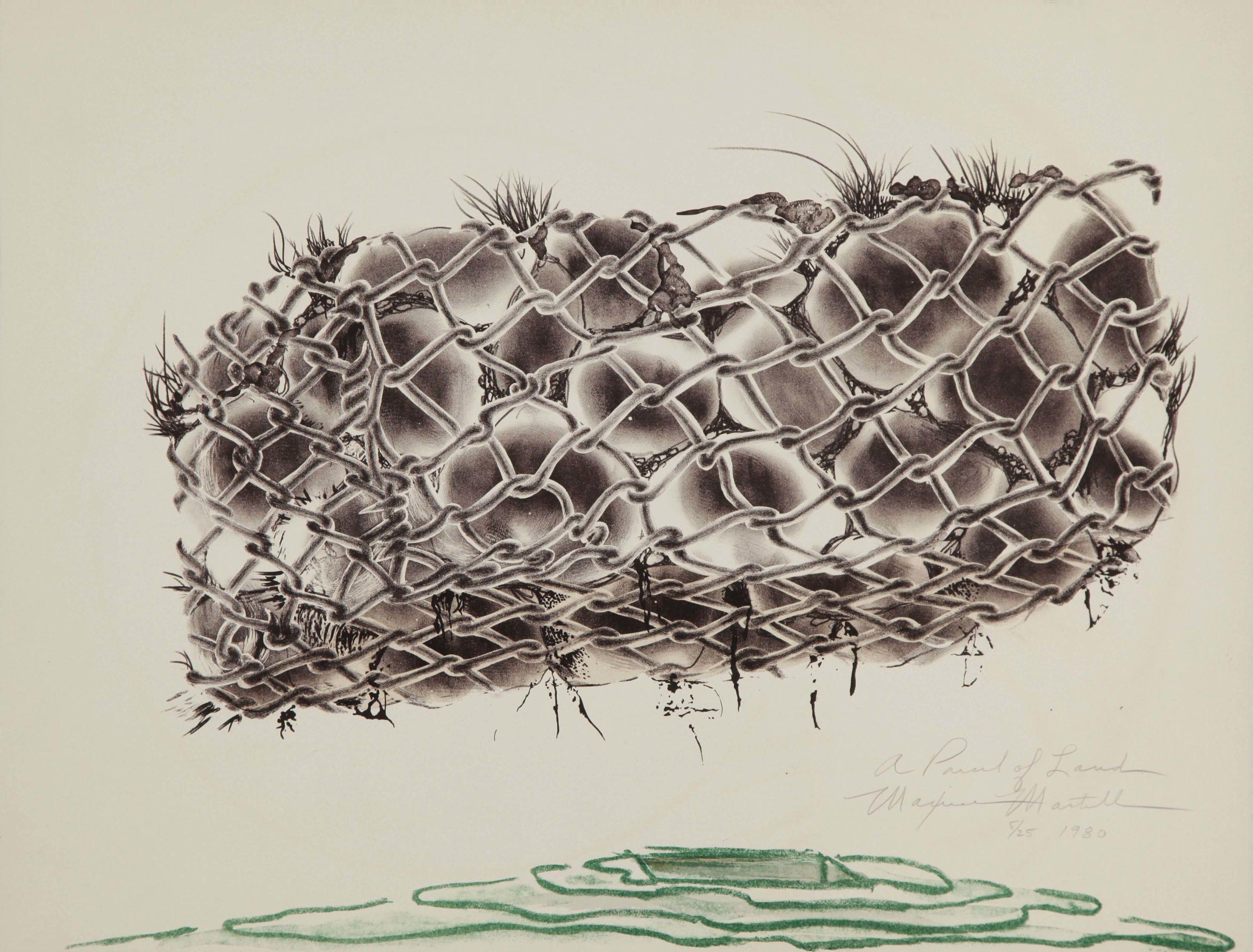
Maxine Martell
Parcel of Land
Color Lithograph
19 ½ x 26 inches
1980
Spokane City Hall
Gina Freuen
Retired Gonzaga University instructor and longtime principal artist at Trackside, Gina Freuen creates multimedia works on paper and complex but whimsical one-of-a-kind porcelain and stoneware vessels. Freuen incorporates multiple techniques into her intricate works of art. These techniques include hand building, wheel throwing, pressing, carving, and hand drawing. Freuen’s teapots might be the most recognizable of her ceramic work. Exercise in Quiet Activity is an example of Freuen’s tableaus which combine ceramic figures with drawings on mat board.
https://www.instagram.com/gfreuen/
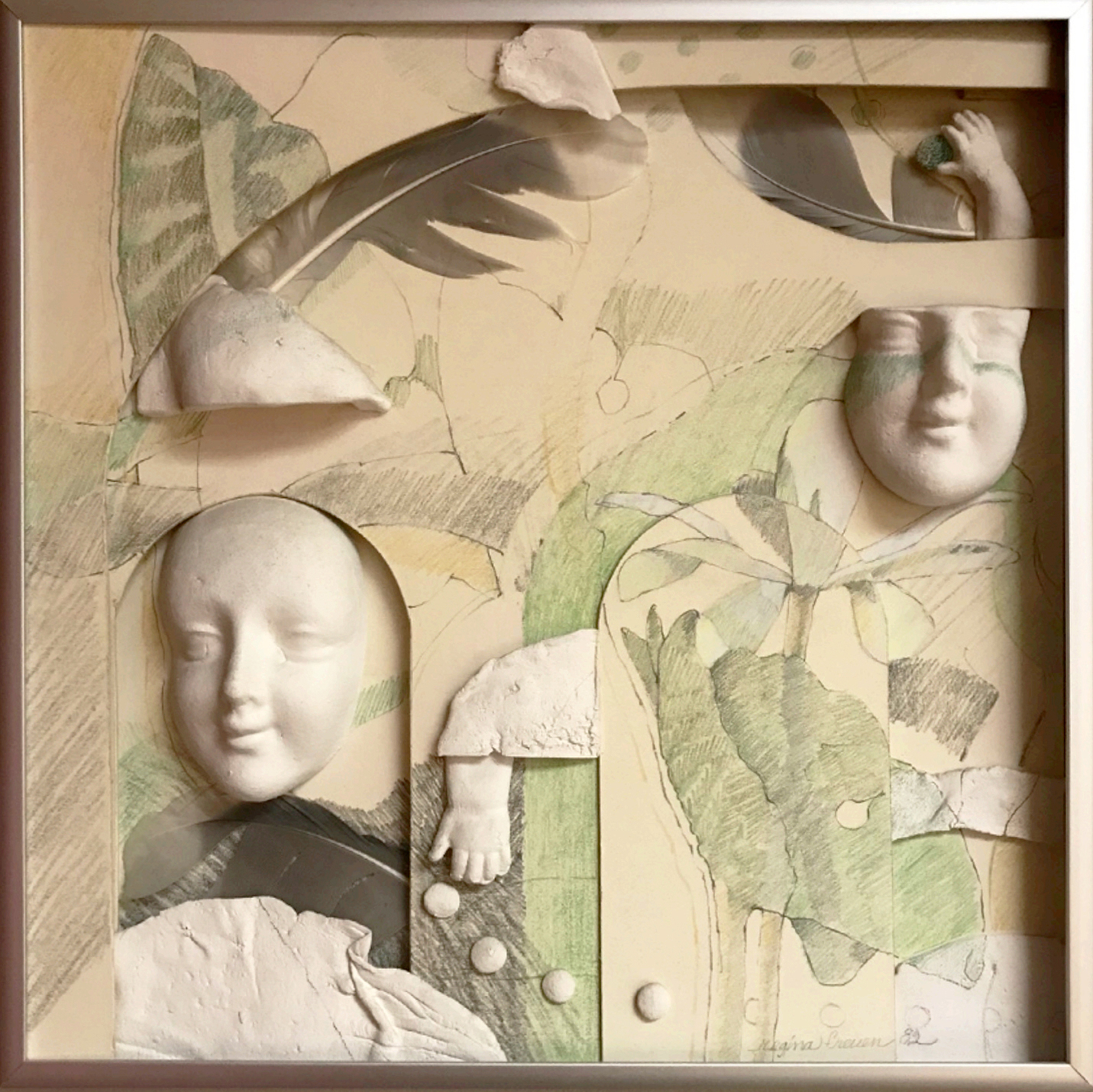
Gina Freuen
Exercise in Quiet Activity
Collage 12 x 12 inches
1982
Spokane City Hall
Charlene Teters
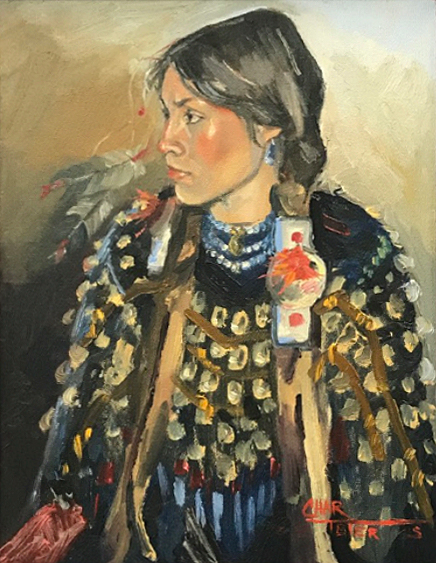
Charlene Teters
Cowry Shell Dress
Oil on Canvas
12 x 15 inches
1982
Spokane City Hall
“My art, lecturing and teaching has centered around achieving a national shift in the perception of native people. All too often we are still seen as objects or as a people trapped in the past-tense. We are twenty first century people, and must be seen as such in order to deal with the serious issues that face us today.”
— Charlene Teters
Native American artist, educator, and activist Charlene Teters is a Spokane Tribe member who first gained national prominence as a graduate student at the University of Illinois Urbana-Champaign where she led protests against the degrading depictions of Native American caricatures used as sports teams’ mascot. Now, Teters holds an MFA from the University of Illinois, an Honorary Doctorate of Fine Arts from Mitchell College, New London Connecticut, and many awards including the New Mexico Governor’s Award, Lifetime Achievement Award from the Women’s Caucus for the Arts, Person of the Week in 1997 for ABC World News Tonight with Peter Jennings, and Chalmers Memorial Award from the American Civil Liberties Union. Additionally, Teters was the first artist-in-residence at the American Museum of Natural History in New York City and has artwork in exhibitions and collections internationally.
Herman Joyner
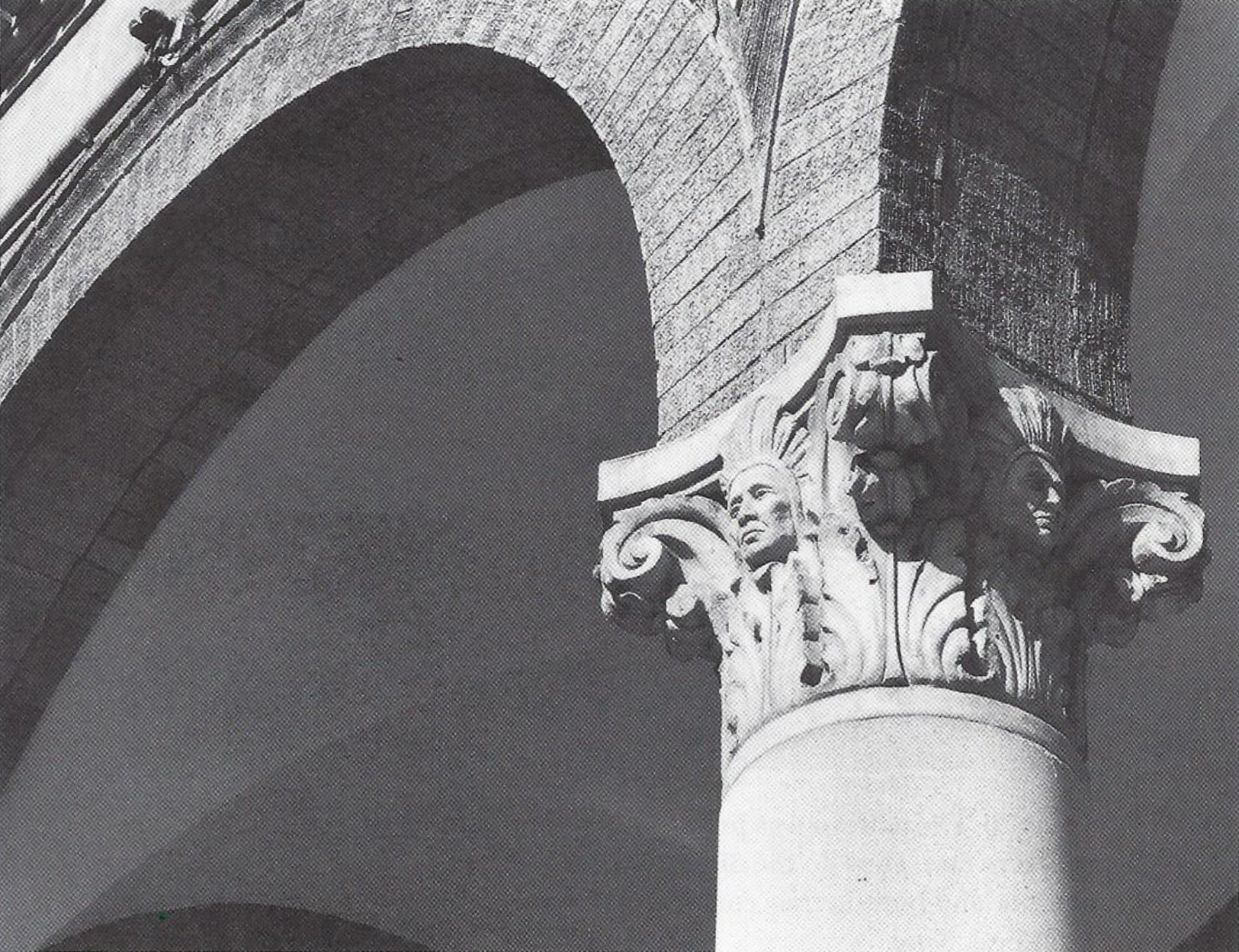
Herman Joyner
Indian Arch
Black and White Photograph
1 x 1.5 inches
Spokane City Hall
Waichi Tsutaka (津高和一)
Hibiki, donated by a previous Spokane resident, translates to “resonance” or “echo” in Japanese. Hibiki is by 20th century Japanese painter Waichi Tsutaka (1911 – 1995). While Tsutaka’s worked began focused on the ruins of the Second World War, he shifted to painting abstract work incorporating abstract shapes and poised lines, combined with bold color. Though Tsutaka did not join any particular art movement, he did join small artist societies including Gendai bijutsu kondankai (Contemporary Art Discussion Group) where artists could discuss ideas freely regardless of associations with any school or movement. Tsutaka died in the Great Hanshin earthquake in Kobe in 1995, age 84. But Tsutaka’s work lives on in collections including The National Museum of Art, Osaka, The National Museum of Modern Art, Tokyo, among others.
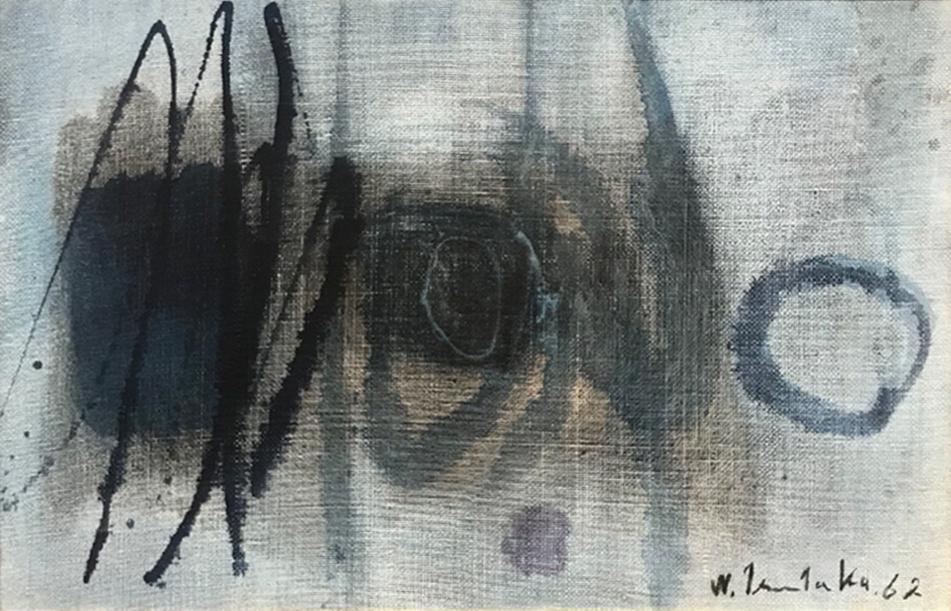
Tsutaka Waichi
Hibiki
Painting
1962
20 x 30 inches
Spokane City Hall
Paul Horiuchi
The great painter and collagist Paul Horiuchi (1906 – 1999) was born in Japan, immigrated to the U.S. as a teenager, and settled in Seattle. While originally an oil painter, Horiuchi eventually shifted to the medium of collage, for which he is most well-known today. He created his “palette” by dying sheets of handmade paper with casein and pigment. From these he tore and assembled his imagery characterized by abstract compositions which favor large blocks of color over concrete symbolism. Horiuchi has been the recipient of many honors and awards including a Lifetime Achievement Award from the Wing Luke Asian Museum in 1955. Horiuchi’s work can be seen in collections around the world, including the SF MOMA, Seattle Art Museum, Smithsonian Museum, the Cambridge Art Museum, the Fogg Art Museum at Harvard University, and the Tokyo Museum of Modern Art. His most well-known public piece, a 17 x 60 foot collage mural, can be seen at the Seattle Center amphitheater.
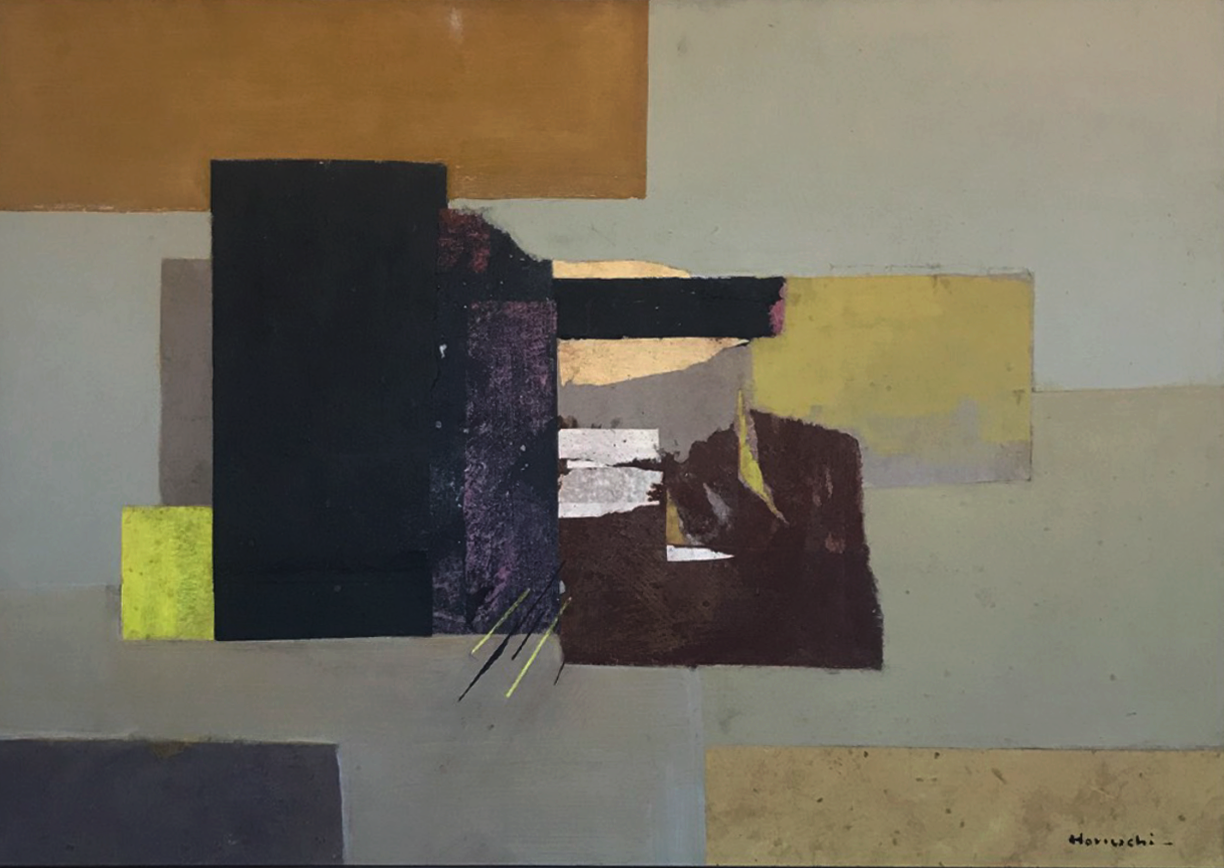
Paul Horiuchi
Morning
Collage
36 x 52 inches
1981
Spokane City Hall
"I have always wanted to create something serene, the peace and serenity, the quality needed to balance the sensationalism in our surroundings today."— Paul Horiuchi
Judy Pfaff
Celebrated artist Judy Pfaff’s work spans across disciplines from painting to printmaking to sculpture to installation. Cited as a pioneer of installation art, her work is perhaps best described as painting in space. Refusing to give narrative meaning to her work, this urgent and ferocious need to labor for the visual and tactile is remarkable in an era where language dominates artistic activity.
Born in London, New York based artist Judy Pfaff holds a BFA from Washington University Saint Louis, an MFA from Yale University, and many awards including the Lifetime Achievement Award from the International Sculpture Center, the MacArthur Foundation Award, and the Guggenheim Fellowship. Pfaff exhibited work in Whitney Biennials and represented the United States in the 1998 Sao Paulo Biennial. Her pieces reside in the permanent collections of MOMA, Whitney Museum of Art, Tate Gallery, Brooklyn Museum of Art, and Detroit Institute of Arts, among others.
https://www.judypfaffstudio.com/
https://www.instagram.com/judy.pfaff/

Judy Pfaff
Untitled
Mixed Media
1984
Spokane City Hall
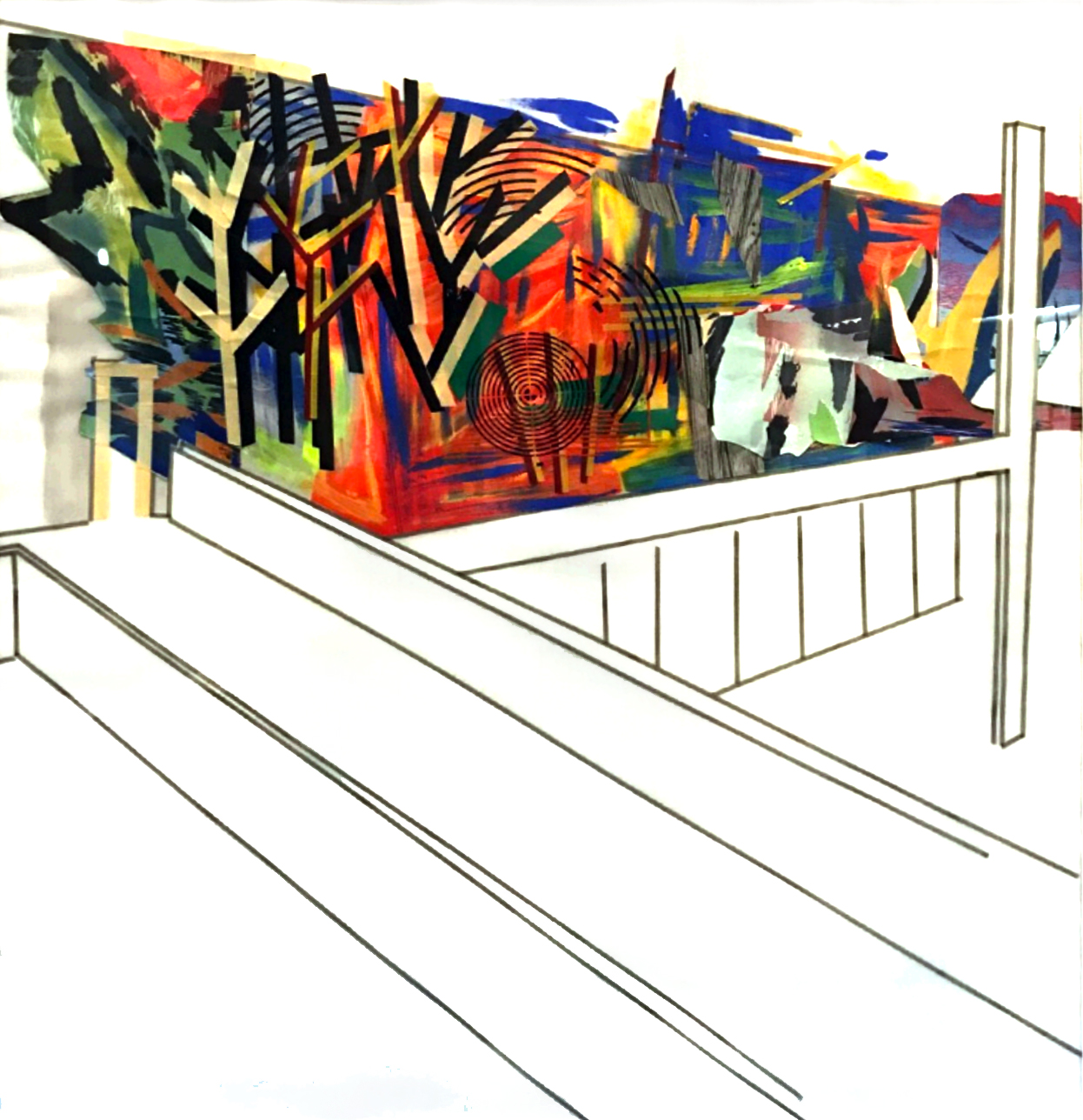
Preliminary Drawing
Mixed Media on Paper
3 x 3 inches
1984
Spokane City Hall
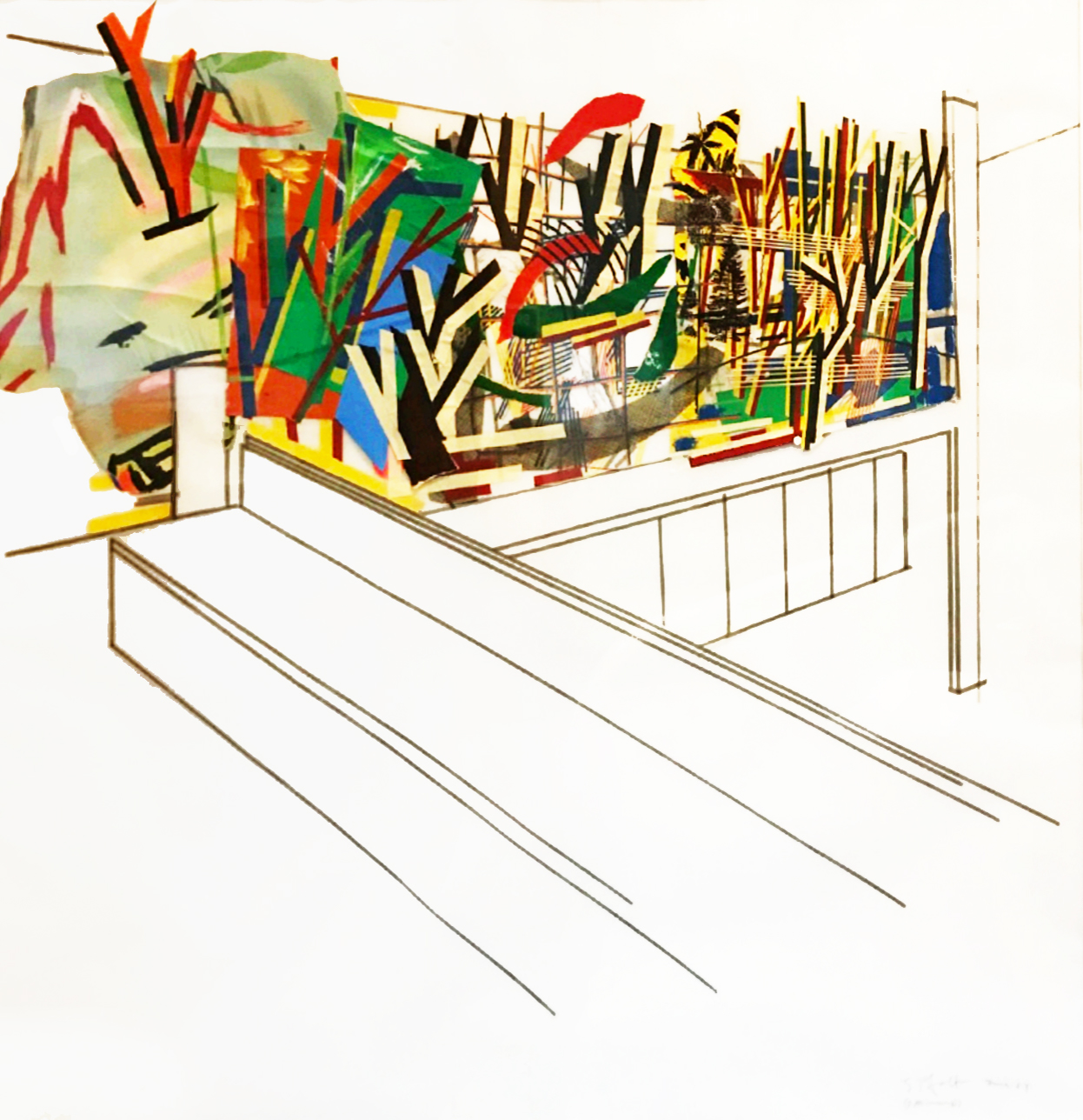
Preliminary Drawing
Mixed Media on Paper
3 x 3 inches
1984
Spokane City Hall
Sister Cities
Did you know Spokane has six Sister Cities? Spokane has one of the earliest Sister City relationships. In 1961, Spokane formalized an agreement with Nishinomiya, Japan, which continues to this day. The goal of Spokane’s Sister Cities program is to explore other countries through culture, education, and business. Additional Sister Cities include Cagli, Italy (since 2016), San Luis Potosi, Mexico (since 2014), Limerick, Ireland (since 1990), Jilin City, China (since 1987), and Jecheon, South Korea (since 1999). Japanese Hut was a gift from Nishinomiya, Japan. Spanish Mission Painting was a gift from San Luis Potosi, Mexico. Old Kurush was a gift from the previous Sister City Makhachkala, Russia. Gifts from Sister Cities are all around the city, including artwork, the Sister Cities “Connections” Garden in Riverfront Park, the Japanese Garden in Manito Park, table claws in the Mayor’s conference area used for special lunches, and more!
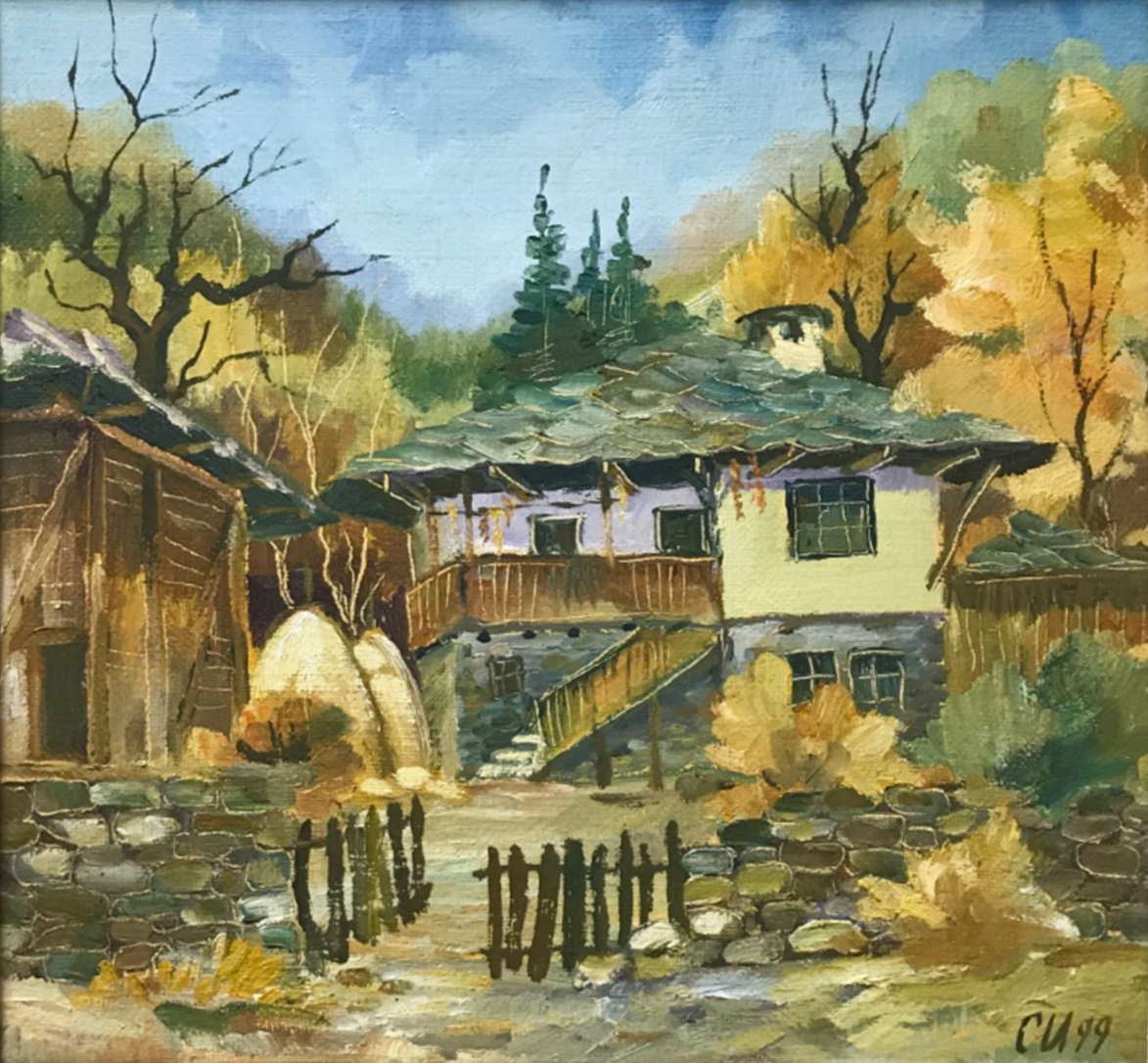
Sister City Gift
Japanese Hut
Painting
Spokane City Hall
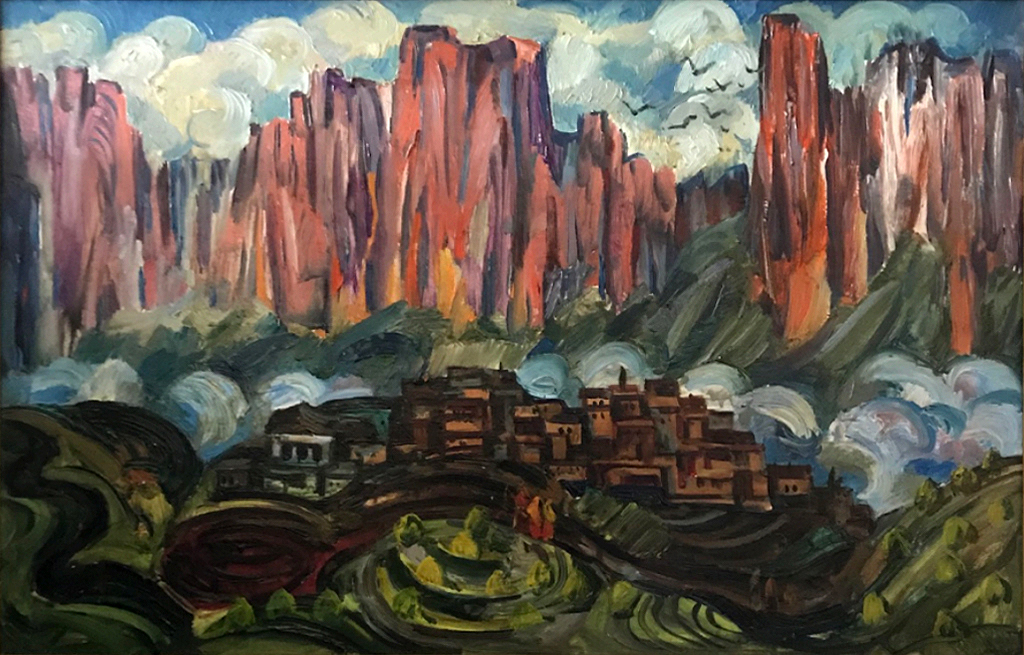
Sister City Gift
Zulkarny Rabadanov
Old Kurush
Painting
Spokane City Hall
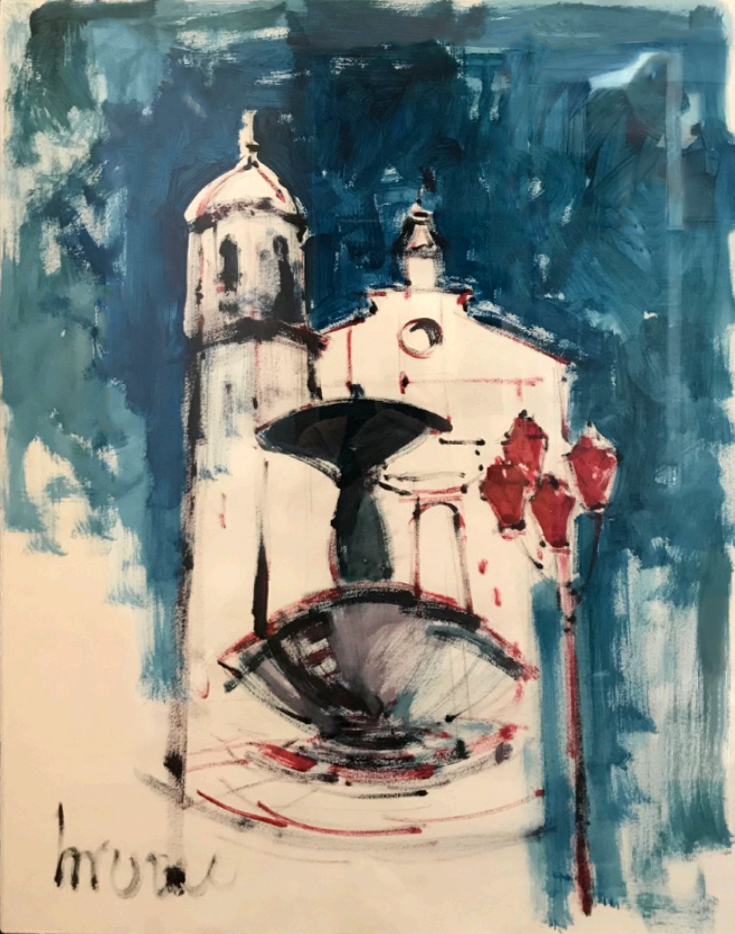
Sister City Gift
Spanish Mission Painting
Painting
Spokane City Hall


 For Kids
For Kids
